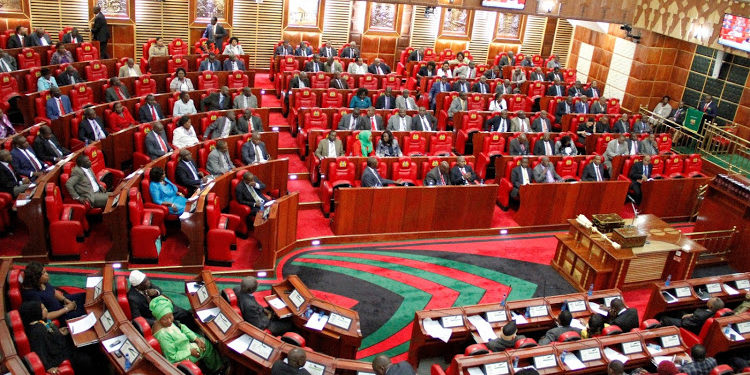The Senate is set consider the Affordable Housing Bill, 2024 at the Third Reading stage also known as the Committee of the Whole House. This comes after the bill passed the second reading in parliament
After split voting, 141 MPs cast their ballot in favour of the bill against 58 who opposed it.
The Bill is a proposed legislation seeking to introduce a mandatory levy for one of President William Ruto’s most significant pet projects. As it approaches the legislative stage, where amendments are possible, a variety of proposed changes are anticipated to be discussed.
One of the amendments lined up by the Committee on Roads, Transportation, and Housing includes changing the title to the Rural and Urban Affordable Housing Act.
“That the Bill be amended by deleting the words “Affordable Housing Act,2024” appearing immediately after the words “cited as the” and replacing therefore the following new words “Rural and Urban Affordable Housing Act, 2024,’’ reads the proposed amendment on the order paper.
The Bill which seeks to impose a 1.5 per cent levy on Kenyan’s Gross Income, was approved in the National Assembly with 141 lawmakers approving it at the Third Reading as opposed to 58.
In the National Assembly, Kenya Kwanza legislators successfully reinstated an important clause mandating occupants to provide a deposit for housing units, with the intention of enhancing the program’s sustainability. This decision was made in response to feedback received during public engagement sessions.
Amendments to the Bill granted the Treasury Cabinet Secretary discretion to determine the deposit requirement, hence addressing some stakeholders’ apprehensions.
The National Assembly’s endorsement came after the Bill was reintroduced subsequent to the High Court nullifying section 84 of the Finance Act, 2023, which had introduced the Affordable Housing Levy due to the absence of a legal framework.
Recently, the High Court rejected a petition contesting the Affordable Housing Bill, 2023, ruling that there was sufficient public participation before the Bill’s approval.
“This court concurs with the respondents on their position that the petition herein breached the principle of ripeness as the petitioner presumed that the 3rd respondent intended to conduct public participation through one mode, which is through submission of memoranda when he filed this petition,” Justice Mwanaisha Sharrif said.












